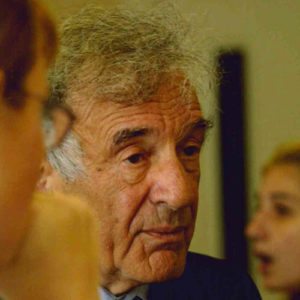Dear Dr. Wiesel,
You may or may not remember me, but I was in your class two years ago [2014]. I’ve been meaning to write a letter asking you what I wish I had asked in our one-on-one conversation. You see, I had very little notice that I would be meeting with you, and I was rather unprepared when I sat in Professor Johnston’s office with you the next morning. I remember feeling so flustered and shocked just to be sitting across from you that all I could think of to ask was, “What do you like to do?” to which you of course responded, “What do you like to do?”
I left our meeting, and your class, thinking I had more to ask and more to learn. It wasn’t until I graduated from Eckerd that year that I knew exactly what I wanted to ask you. I recalled that at some point in our conversation we both shared that the cello was our favorite instrument and how much we both loved music. And I’ve been wanting to get your perspective. Why do you think music affects us the way it does? How does it intertwine with our memories, our emotions, our social bonds? What is it about music that makes us come alive?
I’d been meaning to ask you these questions in this letter, but I waited and waited until I had waited too long. But now that I’ve had to accept this, I wonder if I would have ever really gotten an answer. In your class I was always struck by how you never quite gave an answer to any of the questions the students asked. Instead, you would calmly and quietly speak in what seemed like carefully crafted words of wisdom, responding to questions we had not yet thought of to ask. But we listened. And although we weren’t always told what we were asking to hear, we somehow understood more than we could from any direct answer.
Yet now I feel like there are more questions in the world than ever before. And I wonder, what would you say now? What wise and moral truths could you tell us to help us understand the questions that cannot be explained? It’s as if I’m still sitting in your class, waiting for answers. And all I do listen, hoping to understand what it is that the world could be trying to say.
It didn’t occur to me that this was okay until I recently returned to the words you wrote in my copy of Night: “To Rachel, who listens so well.”
—Rachel Feinberg ’14


